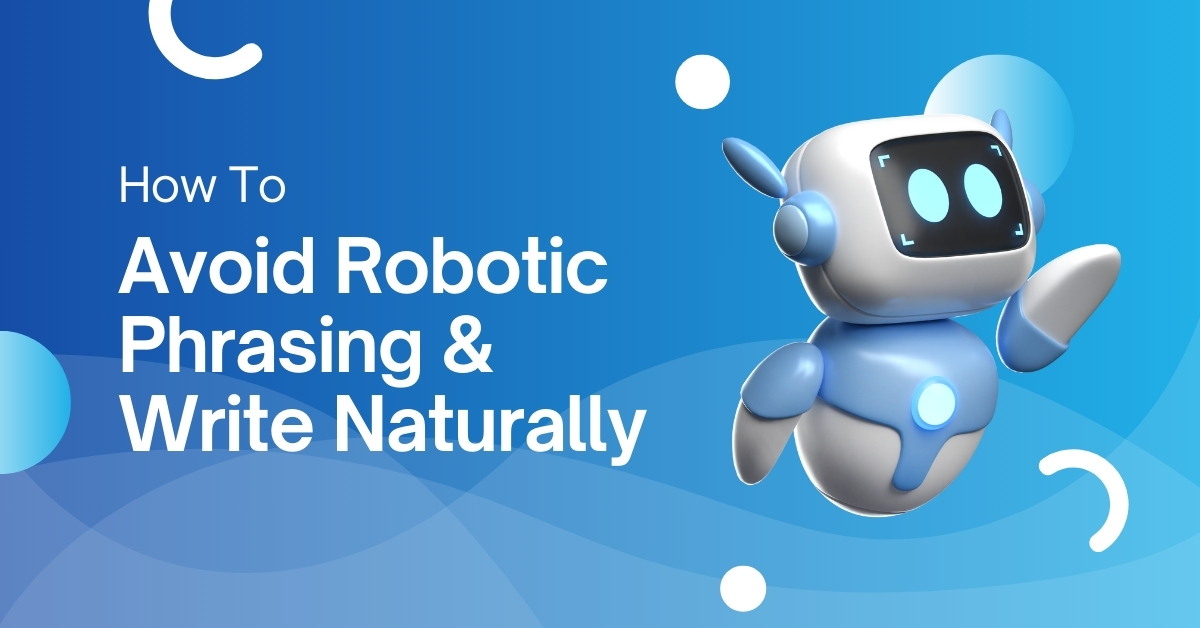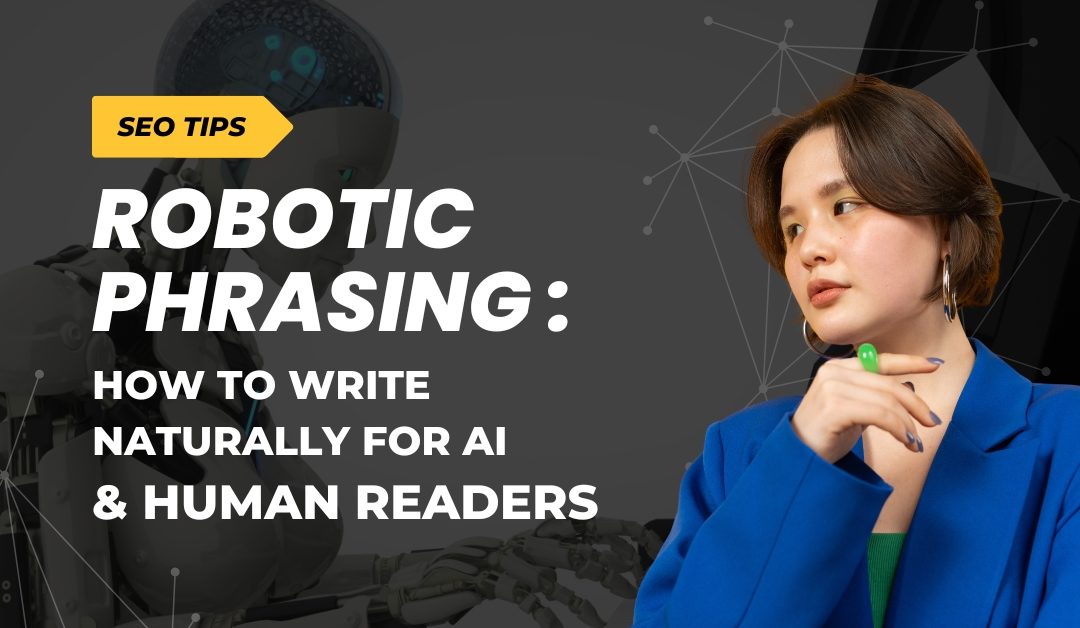The Problem with Robotic Phrasing
Have you ever read an article that felt stiff, repetitive, and awkward? That’s robotic phrasing—a writing style that lacks human touch, often caused by AI-generated content or keyword stuffing. In today’s digital landscape, where Google prioritizes high-quality, engaging, and authoritative content, robotic phrasing can hurt your SEO, AI Overviews ranking, and user experience.
In this guide, we’ll explore what robotic phrasing is, why it’s harmful, and how to write naturally while optimizing for search engines and AI-driven search results.
What Is Robotic Phrasing?
Robotic phrasing occurs when content sounds unnatural, forced, or overly repetitive. It often results from:
- Excessive keyword stuffing (e.g., “best SEO strategy for SEO ranking to improve SEO search results“)
- Overuse of formulaic AI-generated sentences (e.g., “In today’s world, it is important to focus on SEO to rank on Google.”)
- Lack of variation in sentence structure
- Unnatural transitions that don’t flow logically
Google’s Helpful Content Update and AI Overviews prioritize natural, human-like content, meaning robotic phrasing can hurt rankings.
Example of Robotic vs. Natural Phrasing:
Robotic: “SEO is important for ranking on Google. To improve SEO, follow an SEO strategy. This SEO strategy will help with SEO ranking.”
Natural: “If you want better Google rankings, you need a solid SEO strategy. By optimizing your content for search engines while maintaining readability, you improve both user experience and search visibility.”
Why Does It Happen?
- AI-generated content often defaults to rigid structures.
- Over-optimization for SEO (stuffing keywords unnaturally).
- Lack of human editing before publishing.
Why Robotic Phrasing Hurts SEO & User Experience
1. Google’s AI Penalizes Low-Quality Content
Google’s algorithms, including BERT and MUM, are designed to understand natural language. If your content is keyword-stuffed or repetitive, it won’t rank well.
2. AI Overviews & Voice Search Require Conversational Content
With the rise of AI-driven search results, content needs to be conversational and human-like. Users searching via voice assistants expect natural, direct answers.
3. Poor Engagement & High Bounce Rates
Readers will quickly leave a page if it sounds robotic. High bounce rates signal to Google that your content is not valuable, lowering your rankings.
Case Study:

How to Avoid Robotic Phrasing & Write Naturally
1. Use Conversational, Engaging Language
Write as if you’re speaking to a friend or colleague. Keep sentences varied and fluid.
Example: Instead of saying, “SEO is important for search rankings,” try, “Want to rank higher on Google? You’ll need a strong SEO strategy.”
2. Avoid Overusing Keywords
Instead of repeating the exact keyword multiple times, use semantic variations and related phrases.
Example: If targeting “best digital marketing strategies,” also use:
- Effective online marketing tactics
- Proven digital growth techniques
- Top-performing marketing methods
3. Break Up Long Paragraphs & Use Bullet Points
Google and readers love scannable content. Use bullet points and subheadings to improve readability.
4. Implement Personal & Expert Insights
Google prioritizes E-E-A-T (Experience, Expertise, Authoritativeness, Trustworthiness).
Example: “As an SEO expert with 10+ years of experience, I’ve seen how conversational content consistently outperforms keyword-stuffed articles.”
5. Use Short, Direct Sentences for Featured Snippets
Search engines favor concise answers for AI Overviews and featured snippets.
Example: Q: What is robotic phrasing?
A: Robotic phrasing makes content sound unnatural, repetitive, and AI-generated. Avoid it by using conversational language and varied sentence structures.
6. Read Your Content Out Loud
If a sentence sounds awkward when spoken, rewrite it for better flow.
7. Use AI Responsibly
AI tools can assist with writing but should always be edited by a human to ensure natural tone and originality.

Key Takeaways
✅ Robotic phrasing hurts SEO, AI rankings, and user experience.
✅ Google favors natural, conversational writing over repetitive content.
✅ Use semantic keywords, personal insights, and bullet points for better readability.
✅ Write for humans first, AI second.
✅ Always edit AI-generated content to sound more natural.
Connect with an SEO marketing expert
Humanize Your Content for Better SEO & AI Rankings
In today’s AI-driven search landscape, natural, engaging writing is key to ranking well on Google and providing a great user experience. By avoiding robotic phrasing, using conversational language, and incorporating expert insights, you can create content that resonates with both search engines and readers.
Need help optimizing your content for AI Overviews and Google’s latest algorithms? Contact us today for expert SEO content writing services.
FAQs
1. How do I check if my content sounds robotic?
Read it out loud. If it feels awkward, repetitive, or unnatural, revise it for better flow.

